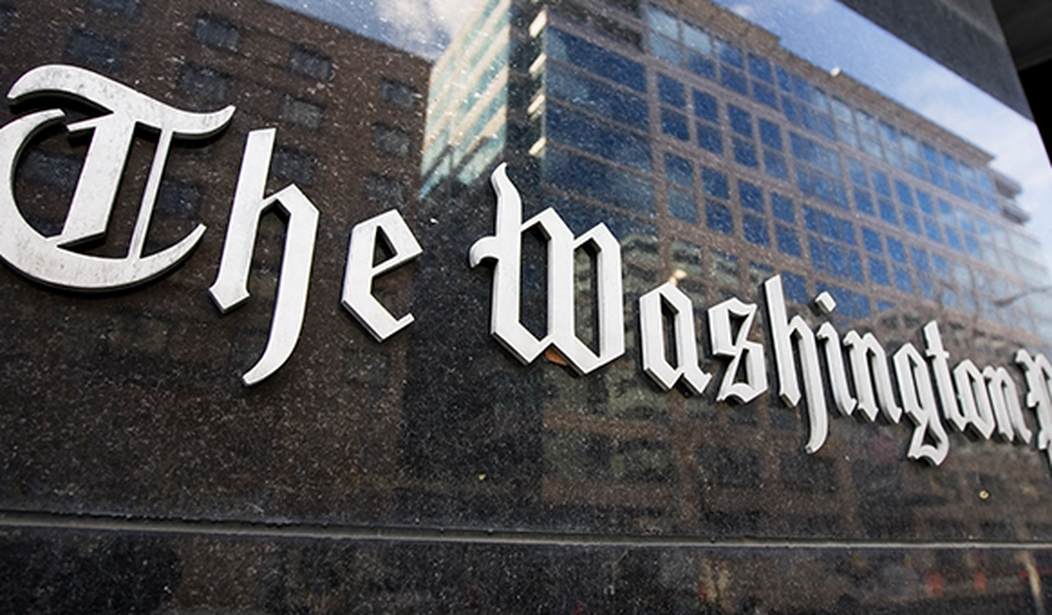Last week, it was revealed that the Department of Homeland Security had put together a Disinformation Governance Board, which was so chilling, even the department's Secretary Alejandro Mayorkas acknowledged they could have done a better job explaining it. Unfortunately, Mayorkas' explanations didn't help, and the more we hear about those involved, the worse the whole idea sounds. Sure enough, Democratic allies in the mainstream media, in this case, the editorial board of The Washington Post, is assuring we have no place freaking out over such government restrictions.
On Tuesday, the editorial board posted their view, to "Ignore the hysteria over the Disinformation Governance Board."
The editorial itself is brief and somewhat useless. It hardly strikes confidence. Here's how they try though, with added emphasis:
The Disinformation Governance Board, (whose acronym is the Soviet-sounding DGB) is supposed to aid coordination among DHS offices as they counter viral lies and propaganda that pose a threat to domestic security. Done right, this is a useful function. Mr. Mayorkas mentioned campaigns by human smugglers targeting migrants to trick the Haitian community into thinking they could enter the United States without risk of deportation. Russia’s persistent efforts to influence U.S. elections are well known. Studying the “best practices” for stymying these attempts and sharing them with government actors could do a great deal of good.
What the board is not tasked to do is to establish what is true and what is false, or to push Internet services or anyone else to rake a tougher line on expression in general. Indeed, the board has no operational authority at all.
Already, components of the agency are gathering knowledge about what rumors are circulating so that they might respond. They, as well as government actors charged with disseminating the facts to debunk popular falsehoods or with educating citizens on how to avoid being fooled in the first place, need to know how to execute their roles effectively — as well as how to do so without infringing on civil liberties. The board is supposed to ensure that these government authorities — from the Federal Emergency Management Agency as it counters scammers following natural disasters to the Cybersecurity and Infrastructure Security Agency as it instructs critical infrastructure companies on how to secure themselves against hackers — respect human rights.
Recommended
They word above is "done right," and even that is worth arguing with. For the editorial also acknowledges that "the particulars weren’t really clear at all." What they go on to suggest, laughably so, is that it's merely the name that is the problem.
The editorial, predictably, blamed the "hysteria" that we are told to "ignore" on Republicans, in this case, House Minority Leader Kevin McCarthy (R-CA), who, like so many others, has likened the board to George Orwell's "1984," including when it comes to the Ministry of Truth. Again, it wasn't merely McCarthy, though. "Ministry of Truth" was trending over Twitter for days after the board was announced.
Not mentioned is Sen. Rand Paul (R-KY), who, in a hearing earlier this week, grilled Mayorkas as no one else could, reminding him that it's the U.S. government that is "the greater propagator of disinformation in the history of the world," and thus they're the last entity we should want policing so-called "disinformation," if they don't even know what it is.
The senator also passionately reminded that we work our issues out "by debating this, we don't work them out by the government being the arbiter. I don't want the government guardrails," Paul said, using Mayorkas' own phrasing, as he added "I want you to have nothing to do with speech."
Sen. Paul went on to ask the secretary, "do you think the American people are so stupid they need you to tell them what the truth is? You can't even admit what the truth is with the Steele dossier. I don't trust government to figure out what the truth is! Government is largely disseminating disinformation," he aptly reminded.
Christina Pushaw, the press secretary for Gov. Ron DeSantis (R-FL), had shared a rather fitting take on it over Twitter on Saturday morning.
Virginia's Del. Nick Freitas, a Republican, also had some pithy takes of his own.
Oh, look, it’s the “Democracy Dies in Darkness” crew telling us there is nothing to fear from a government-run disinformation board. pic.twitter.com/I3Dkzdp1DB
— Nick Freitas (@NickForVA) May 7, 2022
Tell me you’re a shameless hack for government power without telling me you’re a shameless hack for government power. pic.twitter.com/g03zljibcb
— Nick Freitas (@NickForVA) May 7, 2022
Freitas, and many others over Twitter, took to highlighting the outlet's tagline of "Democracy Dies in Darkness."
























Join the conversation as a VIP Member